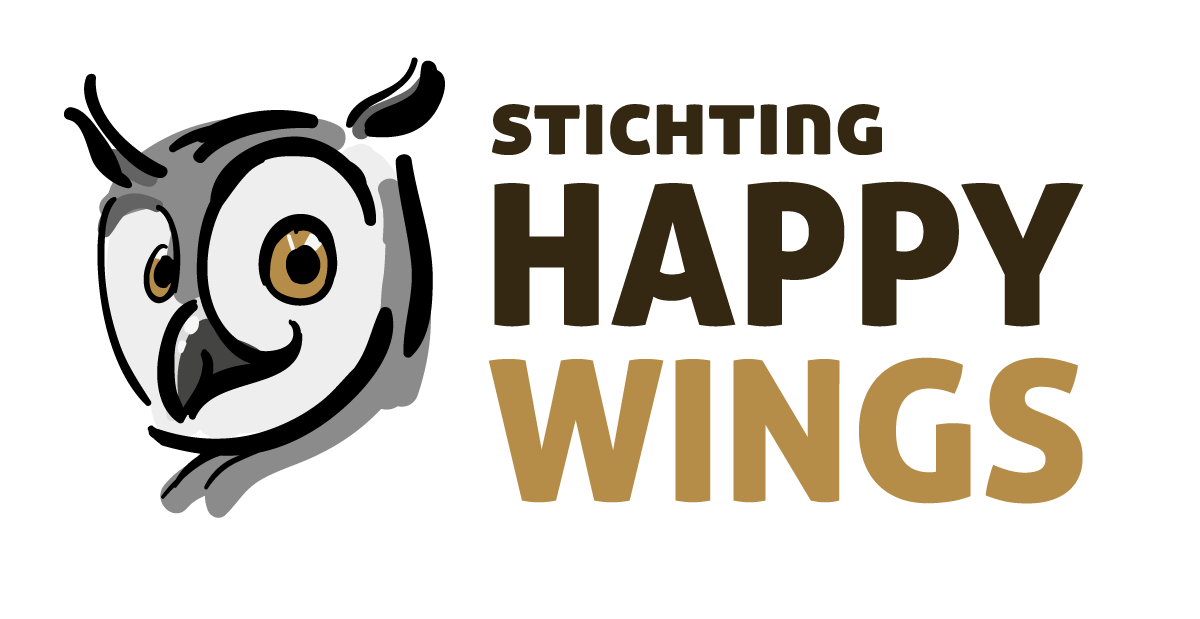Visits to Healthcare Institutions, Special Education Schools, and the Seriously Ill
Stichting Happy Wings visits children and elderly with disabilities or serious illnesses with its birds of prey and owls to provide them with an unforgettable experience and to help them discover their own abilities. Participation can take various forms: actively helping or simply observing. Often, someone who is initially hesitant eventually dares to hold a bird on their arm.
These visits are fully tailored to the target audience and are conducted in a relaxed manner with individual attention. Each visit is unique.
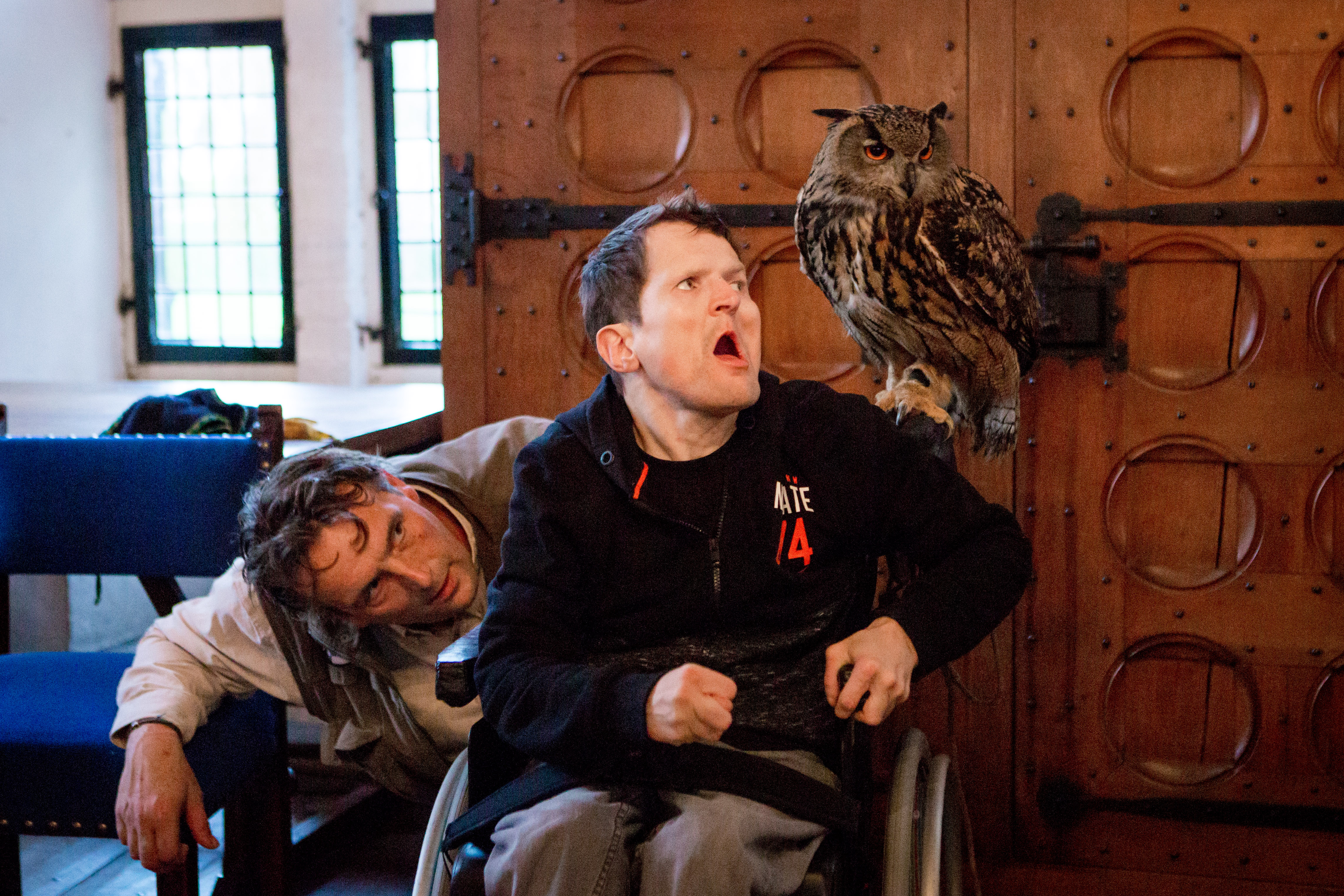
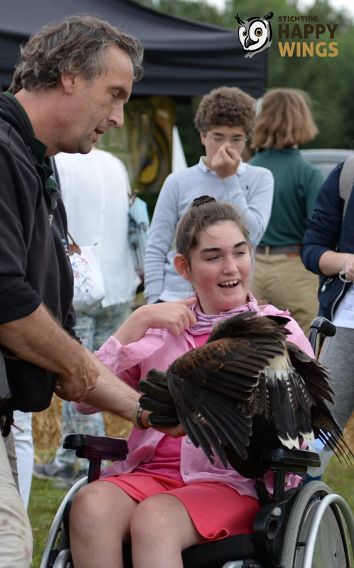
Guiding Young People or Young Adults with Disabilities
Additionally, Stichting Happy Wings provides small-scale guidance to young people or young adults with disabilities. This guidance is very individualized and tailored to the needs of the care recipient. They accompany the falconer on visits to institutions and assist with lessons and workshops, where they perform their own tasks. This way, they learn to work independently and to adapt their behavior to the birds, which helps them regulate their own behavior and emotions. This increases their self-confidence and self-reliance, which benefits them in society.
Providing Educational Lessons and Workshops
Stichting Happy Wings does not provide shows or demonstrations with its birds. The birds can, however, be used in educational lessons at primary, secondary, and special education schools. These lessons can be adapted to any level and are interactive. Students are actively involved in these lessons and learn about the species and lifestyles of the different birds in a relaxed way. These lessons can also be used as workshops for various target groups.
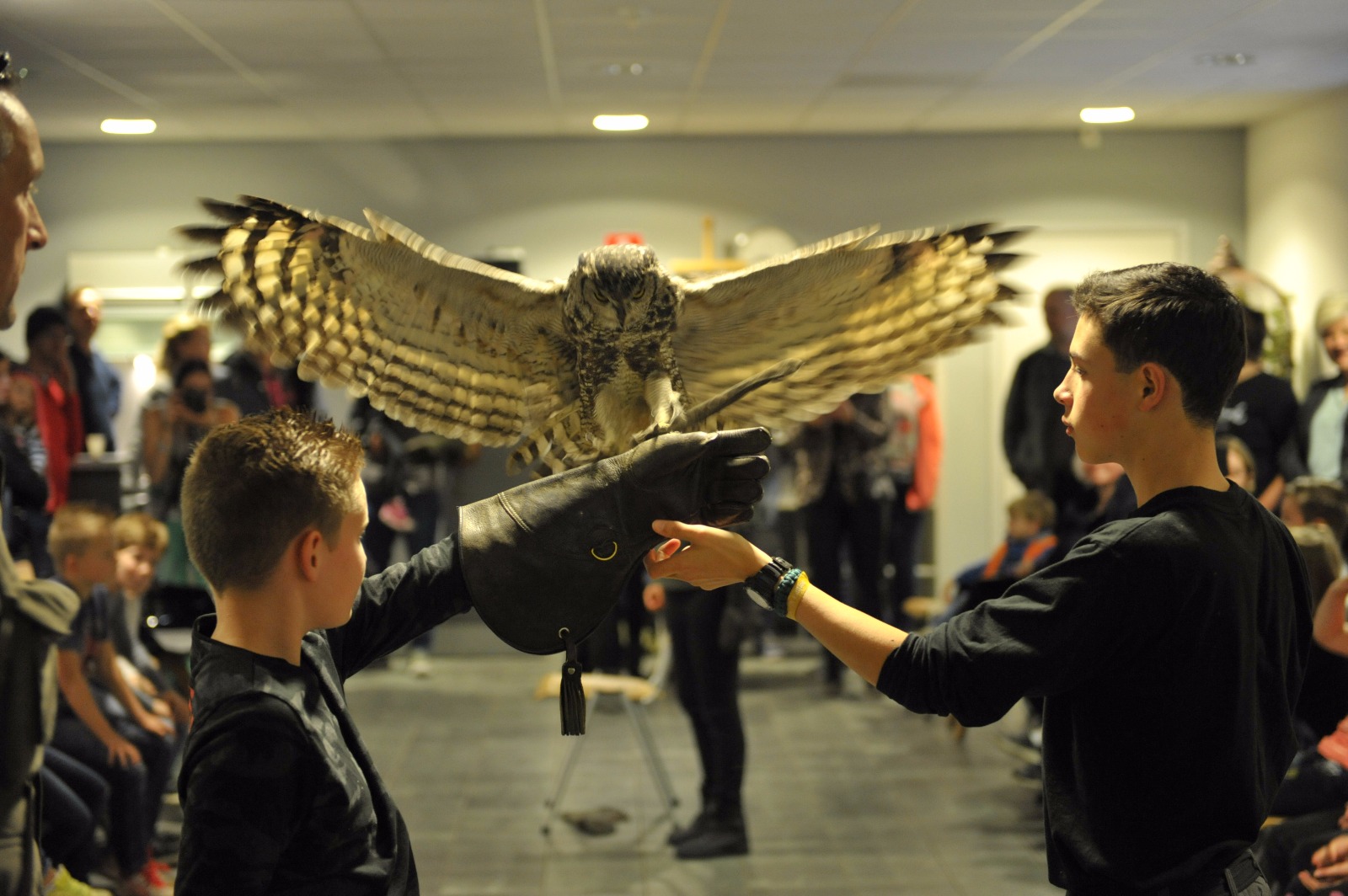
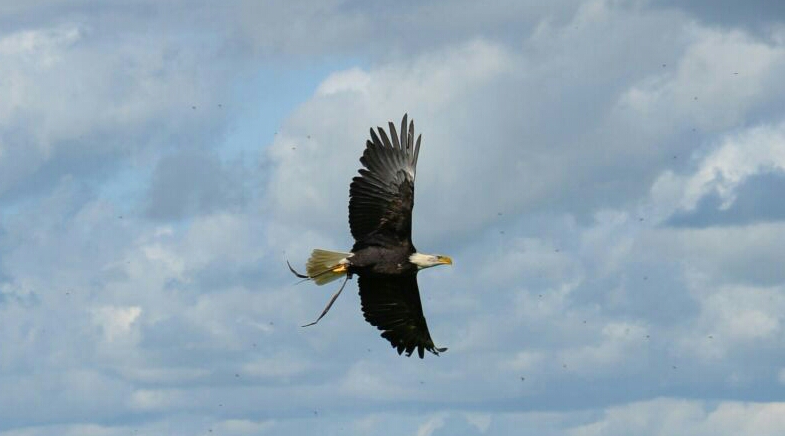
The Birds
Stichting Happy Wings does not provide shows or demonstrations with its birds. The well-being of the birds always comes first. The birds are so-called "rescue birds," often neglected and in need of a good home. These bred birds cannot be released into the wild and find a safe place at Happy Wings to grow old in peace. Only birds that are suitable for visits to institutions and enjoy it themselves are used for this purpose. All birds get enough flying hours in the wild, not on a leash, but with a transmitter.
